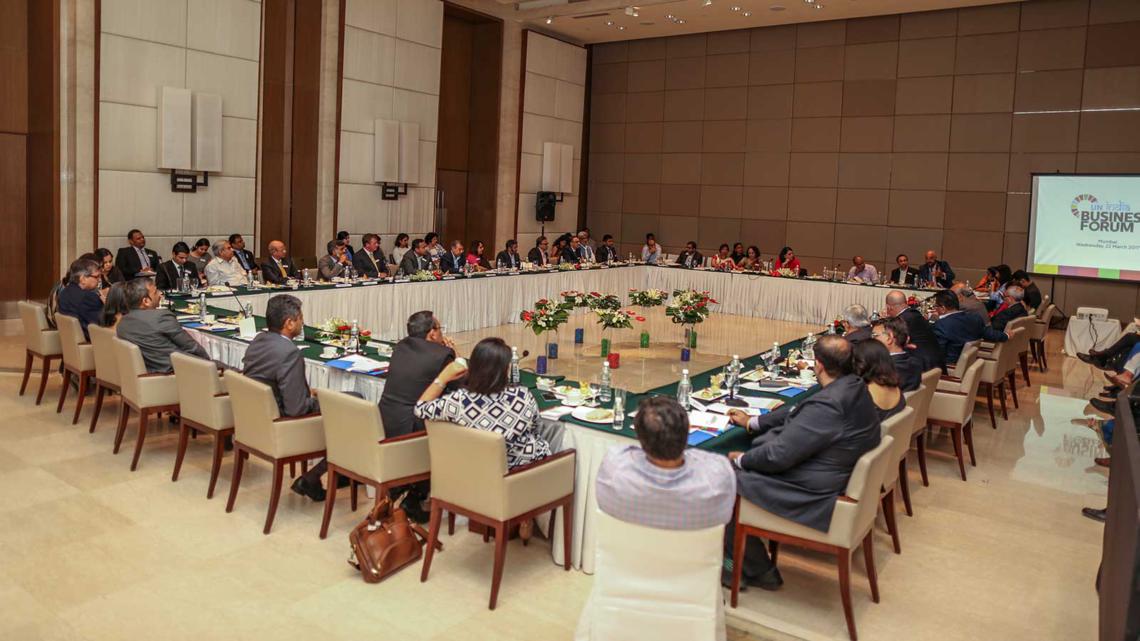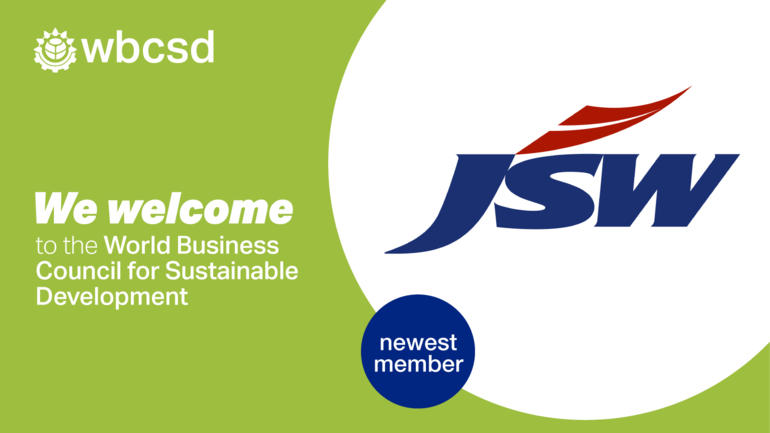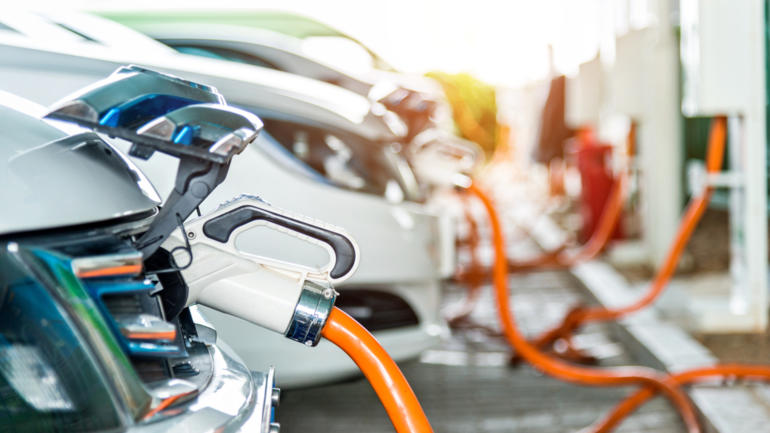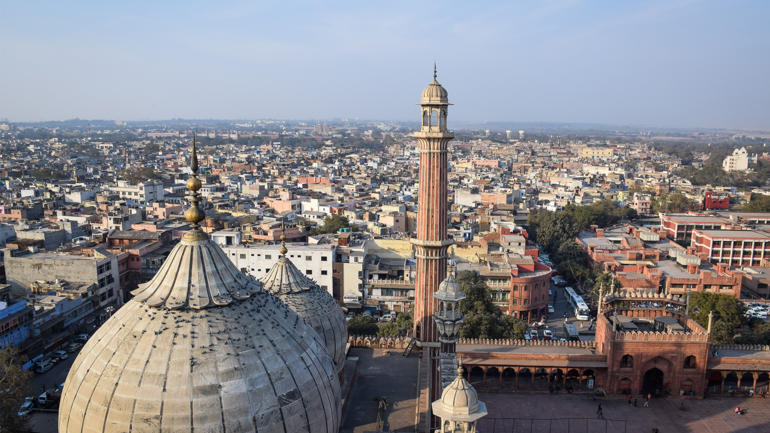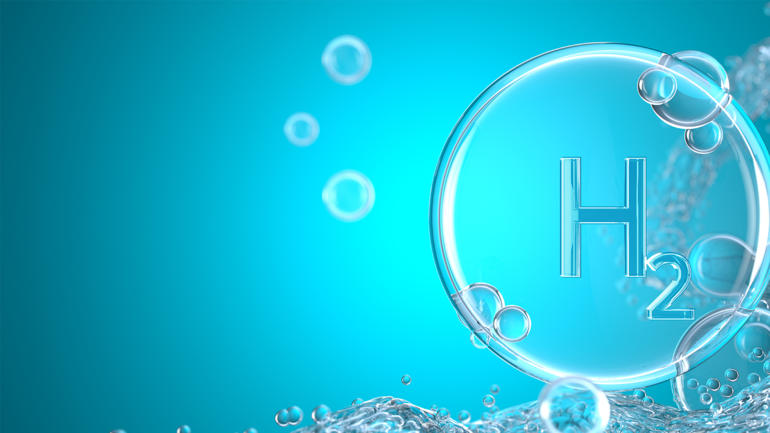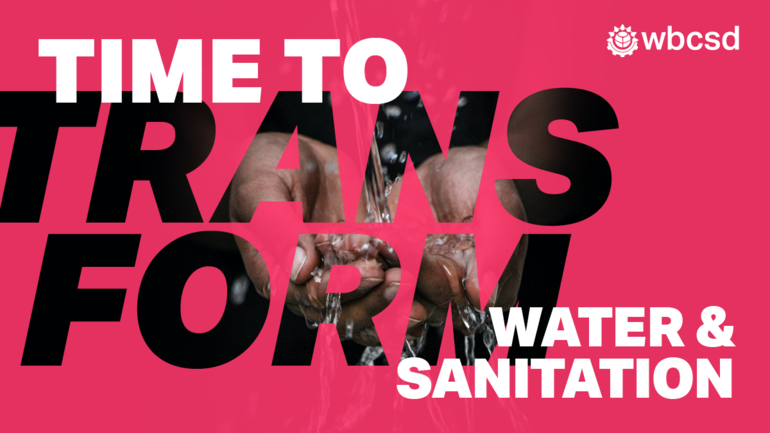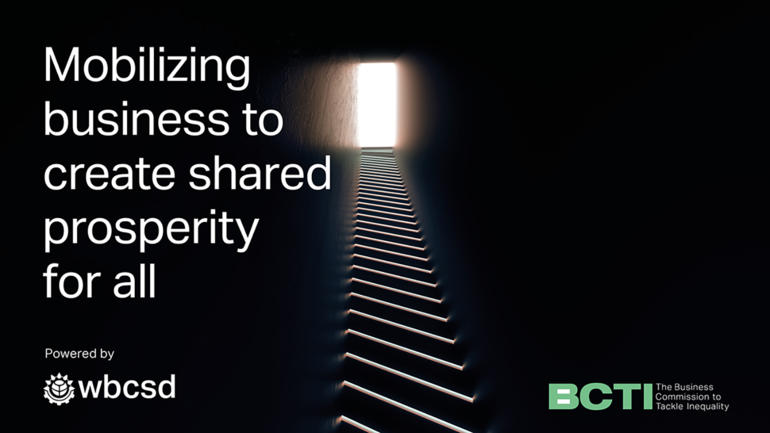On 22 March 2017 a group of leaders of Indian businesses met with the government of India and United Nations agencies operating in India for the launch of the UN India Business Forum. An initiative of the UN Resident Coordinator’s Office, the forum aims to build a tangible long-term partnership of ideas and solutions for sustainable development.
WBCSD provided support to the Forum, which had wide participation of prominent Indian and international business houses including some of our member companies - Tata, Godrej, YES Bank, Aditya Birla Group, Jain Irrigation, Unilever, Shell and more.
193 countries at the United Nations are harnessing their collective strength to achieve the global Sustainable Development Goals (SDGs), adopted in 2015. India is now one of the world’s fastest growing economies, therefore playing a critical role in the achievement of the SDGs. Prime Minister Modi had said in his address to the UN at the adoption of the SDGs, “the sustainable development of one-sixth of humanity will be of great consequence to the world.”
Speaking at the launch of the UN India Business Forum, Yuri Afanasiev, UN Resident Coordinator in India, said “the intention of the UN India Business Forum is to identify India’s most pressing developmental problems, commercially viable business models which can help us address them, and solutions that can be scaled up.”
The UN India Business Forum will:
- Identify scalable solutions: business opportunity for private sector, while accelerating progress towards the SDGs
- Create collaborative models: for businesses, the government, and the United Nations to come together to jointly implement programs on specific areas of innovation and sustainable development, and leverage financing for the SDGs
- Convene: business leaders with government and UN leadership to advance and strengthen the dialogue on making the SDGs and national development priorities a part of the private sector’s business models
- Co-create: the next big innovation or idea that will bring off-grid energy solutions to 237 million Indians with no access to energy, bring safe water to 75 million Indians, ensure housing for all by 2022, eliminate stunting and malnutrition where currently India is home to 1/3rd of the world’s stunted children, accelerate universal access to quality education, and empower women – 50% of India’s population – to be equal partners in economic growth.
Amitabh Kant, CEO of NITI Aayog, remarked at the launch that “the challenges for India are very different than those in the Western world, for example, arsenic-free water, seed and fertilizer availability for farmers in real time, and constructing flyovers in 30 days. If solutions to these problems are found in India, we can help seven billion people around the world.”
Joe Phelan, India Director of WBCSD, said that, "India is where the SDGs will be delivered, and the transformations required are already underway. Demonetization, Smart Cities, Make in India are embodiments of the ambition set out in the SDGs. WBCSD members are working together to understand how they can anticipate, shape and accelerate these transformations, where they can collaborate at sector level, and the steps they can take independently to help drive profitable change."
Following the direction set by the high-level roundtable on Day 1, representatives from business, UN agencies, and the government met on 23 March to discuss challenges and opportunities, and brainstorm solutions around six thematic areas - Quality Education, Energy – where WBCSD presented its work on Low-Carbon Microgrids and on Corporate Renewable Power Purchase Agreements, Poverty, Health, Gender Equality, Water and Sanitation - where WBCSD Pledge for Access to Safe Water, Sanitation and Hygiene (WASH) at the Workplace was highlighted as a solution that businesses are implementing toward the Goals.
WBCSD provides a platform for business collaboration to identify and work on scalable solutions, that are also business opportunities, to accelerate progress towards a sustainable world.

